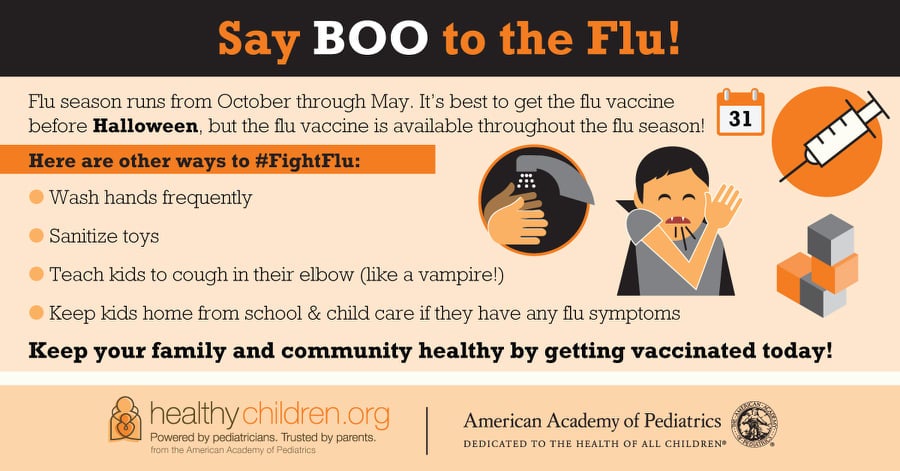What are the benefits of the flu vaccination?
Receiving the flu vaccines reduces flu illnesses, sick appointments or hospital stays, and missed time from work or school. It can also be life-saving for high risk patients like children or seniors.
Can the flu vaccine give me the flu?
The viruses in the flu shot are killed (inactivated), so you cannot get the flu from a flu shot. However, you may experience some minor side effects like, soreness, redness or swelling at the shot site, a low grade fever, and some aches.
For those that receive the nasal spray, the viruses are weakened and do not cause severe symptoms often associated with influenza illness. Side effects from the nasal spray may include, runny nose, sore throat, cough, wheezing, headache, vomiting, muscle aches, or fever.
Who should get vaccinated this season?
Everyone six months of age and older should receive a flu vaccine at the beginning of the flu season, typically every fall.
Who should not be vaccinated against seasonal flu?
A patients age, health or allergies may determine they should not receive the flu vaccine. Talk with your physician to ensure you or your children should receive the flu vaccine.
Why should I get my child vaccinated?
The flu is dangerous for all people, but children under five years old are at an especially high risk when they get sick with the seasonal flu. The flu vaccine is your and your children’s best defense against contracted and spreading the flu.
When should I get a flu vaccine?
For people receiving one dose of the flu vaccine, the Centers for Disease Control recommends that people get the flu vaccine by the end of October. If your child requires two doses, they will need to be given four weeks apart, so chat with your pediatrician on the best time to give the first dose. Getting the vaccine in the summer months may result is reduced protection later in the flu season, especially for high risk patients. There are benefits to receiving the flu vaccine later in the season, so it’s never too late to be vaccinated!

How effective is the flu vaccine?
The patient’s age and health status will determine the effectiveness of the flu vaccine, as well as how well the flu in the vaccine matches the flu circulating in your community. The CDC estimates that the flu vaccine reduces the risk of flu illness by between 40% and 60% among the overall population, when the seasonal flu circulating is well-matched with the flu vaccine.
Besides vaccination, how can people protect themselves against the flu?
Getting the flu vaccine every year is your best defense against the flu. People should also take preventive actions every day. These include, frequently washing hands, covering coughs using the inside of your elbow, not your hand, and avoid having contact with people who are sick (even if they haven’t been diagnosed with the flu).
Where can I get the flu vaccine?
This year’s flu shot is available at IHA Primary Care practices and pediatric doses are available at IHA Pediatric practices. Adults and children may receive the flu shot at any IHA Urgent Care location. Click below to schedule your flu shot.




